“Whether we like it or not, the clock is ticking.”
Florence Pugh and Andrew Garfield deliver their powerhouse performances in a beautifully British, authentic love story – with a key message of time, and how us humans can become both selfish and selfless with it.
Director John Crowley’s latest romantic drama follows accomplished chef and restauranteur Almut Bruhl (played by Florence Pugh), who meets cute and quirky recent divorcee Tobias Durand (Andrew Garfield) after running him over in her car – a rather chaotic meet-cute between the pair.
After their first and slightly awkward conversation in a hospital hallway, Almut and Tobias’s romance is instantly sparked, and so begins the complex and powerful decade-long relationship spanning the almost two-hour film.
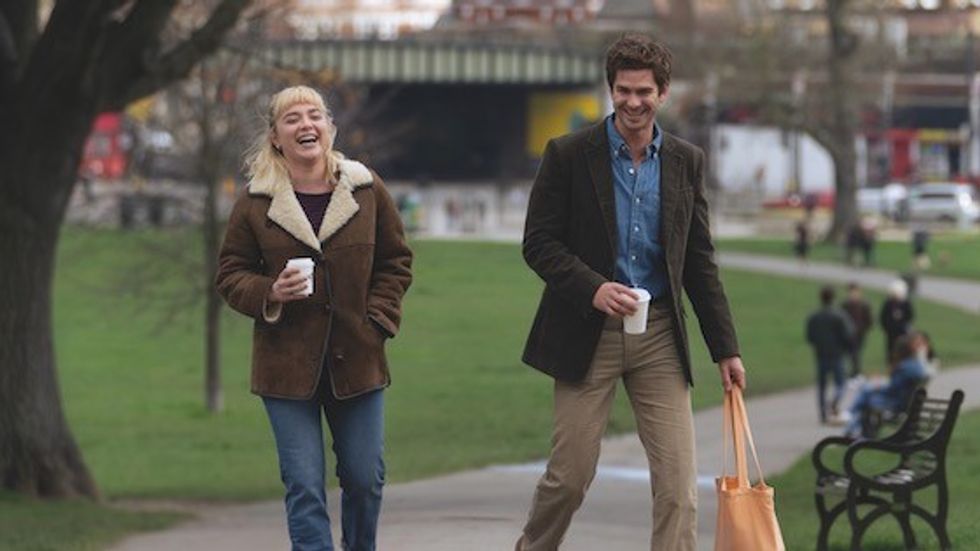
Florence Pugh and Andrew Garfield star in A24’s We Live In Time
A24
The initially confusing non-linear timeline follows Almut and Tobias’s love story through three poignant milestones in their relationship – the honeymoon period of their relationship, their struggles through Almut’s cancer diagnosis and treatment, and their tumultuous navigation as a family after welcoming a child.
Once you adjust to the ever-switching timelines, the relationship is told through ‘pockets’ of time, enabling the viewer to learn how an event in their early relationship has even more of an impact in the later stages, having been thrown into the depths of their trauma within the first few minutes of the film, and with the viewer already knowing what is to come next.
While Tobias and Almut live in their time, as do the viewers – as we are constantly reminded of time in literally and metaphorically way.
Clocks and stopwatches are ever-present, and tear-jerking arguments are had about the time they have left, including one which many women are probably most familiar with – their biological clock.
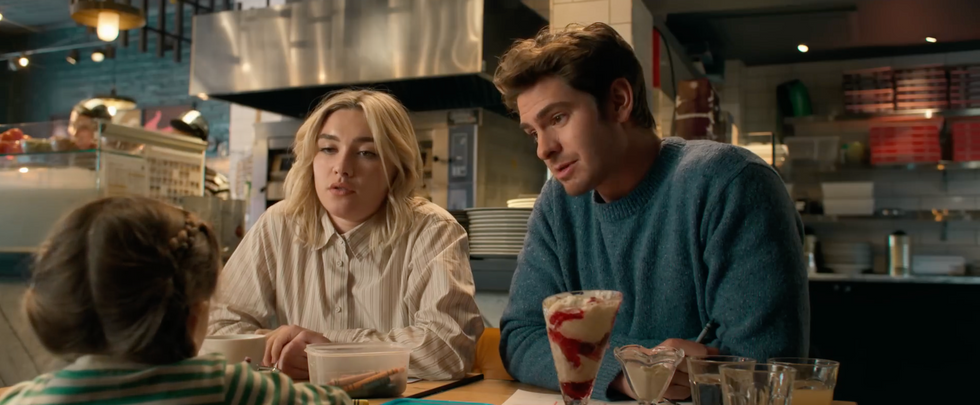
The non-linear storytelling depicts Almut and Tobias’s relationship at three stages of their relationship
A24
Similarly to the unforgiving and authentic timeline of life, this film refrains from glamourising the events experienced by Almut and Tobias – from her cancer prognosis being interrupted by a rumbling stomach to her chaotic and somewhat graphic childbirth in a disabled toilet – which also gave the true British ability to find the humour in even the darkest or traumatic moments of our lives.
The juggling of tone throughout leaves you laughing through the tears just cried and back again – which can rarely be achieved unless you have such a powerful duo as Pugh and Garfield telling the story.
Both Pugh and Garfield are equal in their outstanding and impassioned performances, creating both comedic one-liners and tear-jerking monologues throughout – their true chemistry shining through with genuine laughter shared as Almut and Tobias fall deeply in and out of love.
And as their characters fall hard and fast for each other, viewers can’t help but do the same and become deeply attached to both Almut and Tobias.
Pugh throws herself into the role in every aspect, once again demonstrating her commitment to her craft by shaving her head in a poignant scene – with unsung hero Grace Delaney, who plays their on-screen daughter Ella, telling her mum how beautiful she is.
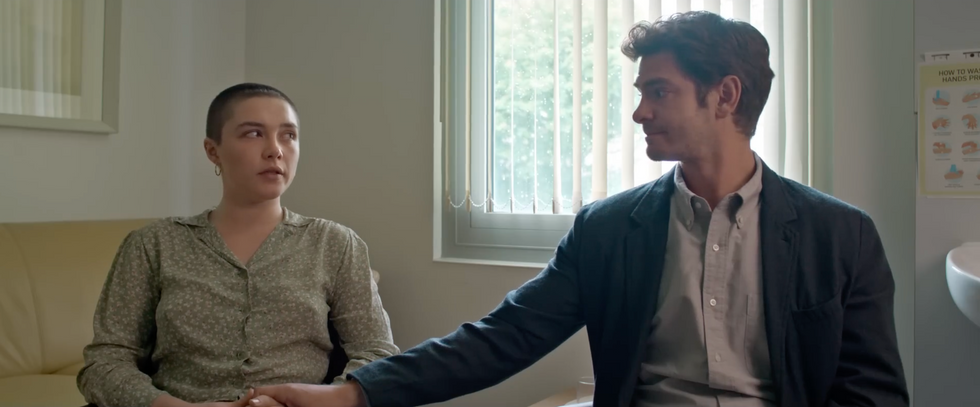
The couple are struck with the grief of time being cut short as Almut learns of her cancer diagnosis
A24
Although it can be suspected that Delaney’s remark was natural and improvised at the moment – as she fails to deliver much else throughout the film and remains a silent performer, almost a prop for Pugh and Garfield to continue their story as parents as opposed to complex, obstacle-ridden lovers.
The third act of the film is arguably the most powerful and gut-wrenching, where we see Almut and Tobias struggle through her second cancer diagnosis, consistently being forced to choose between spending what time she has left on herself or on her family.
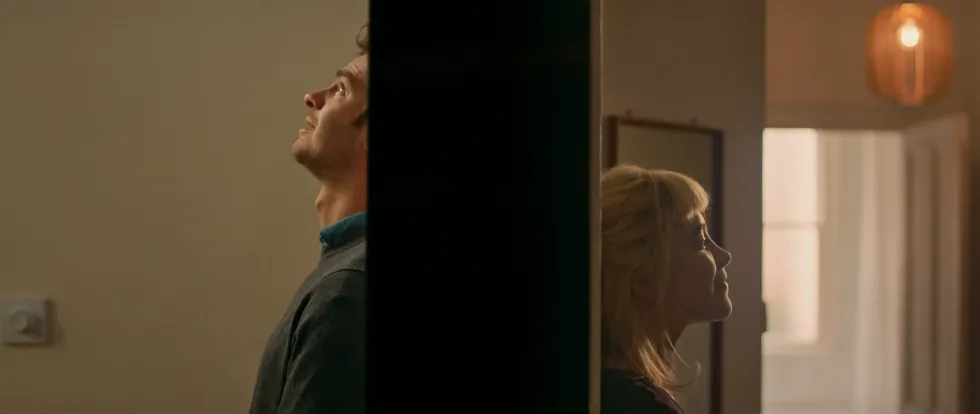
The film’s key message reiterates how we can be selfish with time and not learn to live in the present
A24
Terrified of being forgotten, Almut wants to leave a legacy for her daughter to look back on when she’s gone, which causes friction with Tobias and his desire to marry her and solidify the family they have created.
As an audience, viewers are increasingly saddened by the reality of Almut’s life coming to an end, and how little time she and the film have left, as the pockets of time increasingly become centred around Almut’s final months with Tobias and Ella.
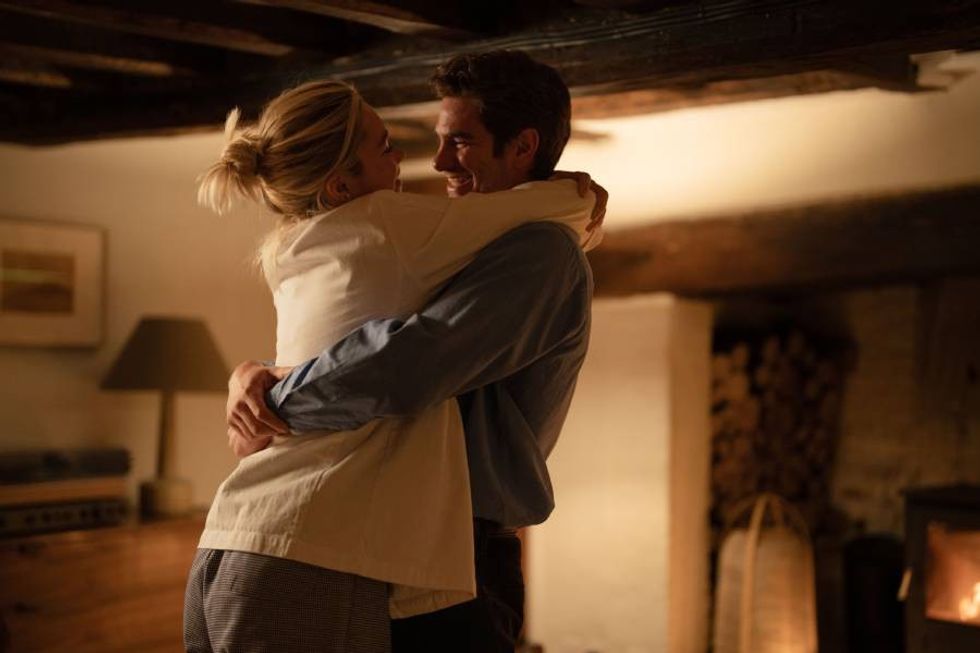
Florence Pugh and Andrew Garfield deliver standout performances as Almut and Tobias
A24
We Live In Time sits within a trinity of authentic British romantic dramas which have graced cinema before it – such as All Of Us Strangers and About Time – which depict the meeting point between time, grief, and treasuring memories in the absence of time.
As the credits roll, as do the tears down viewers faces, including mine.
Director John Crowley’s feature perfectly encapsulates the passage of time, and how it can make you selfish, foolish, blind to it – but most importantly, make you grateful for the time that you have, especially if it is tragically cut short.